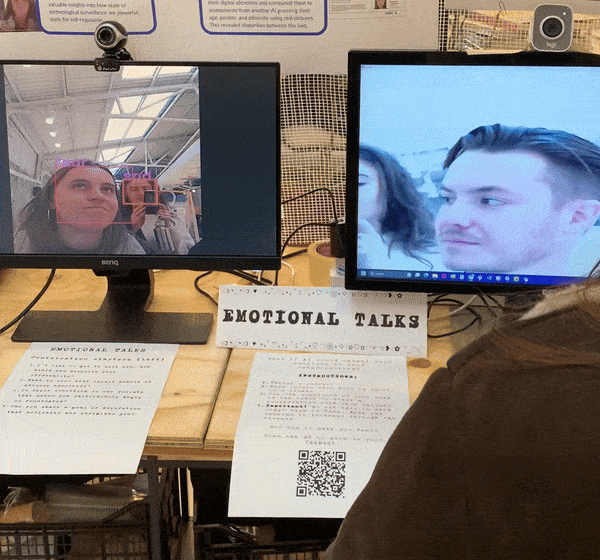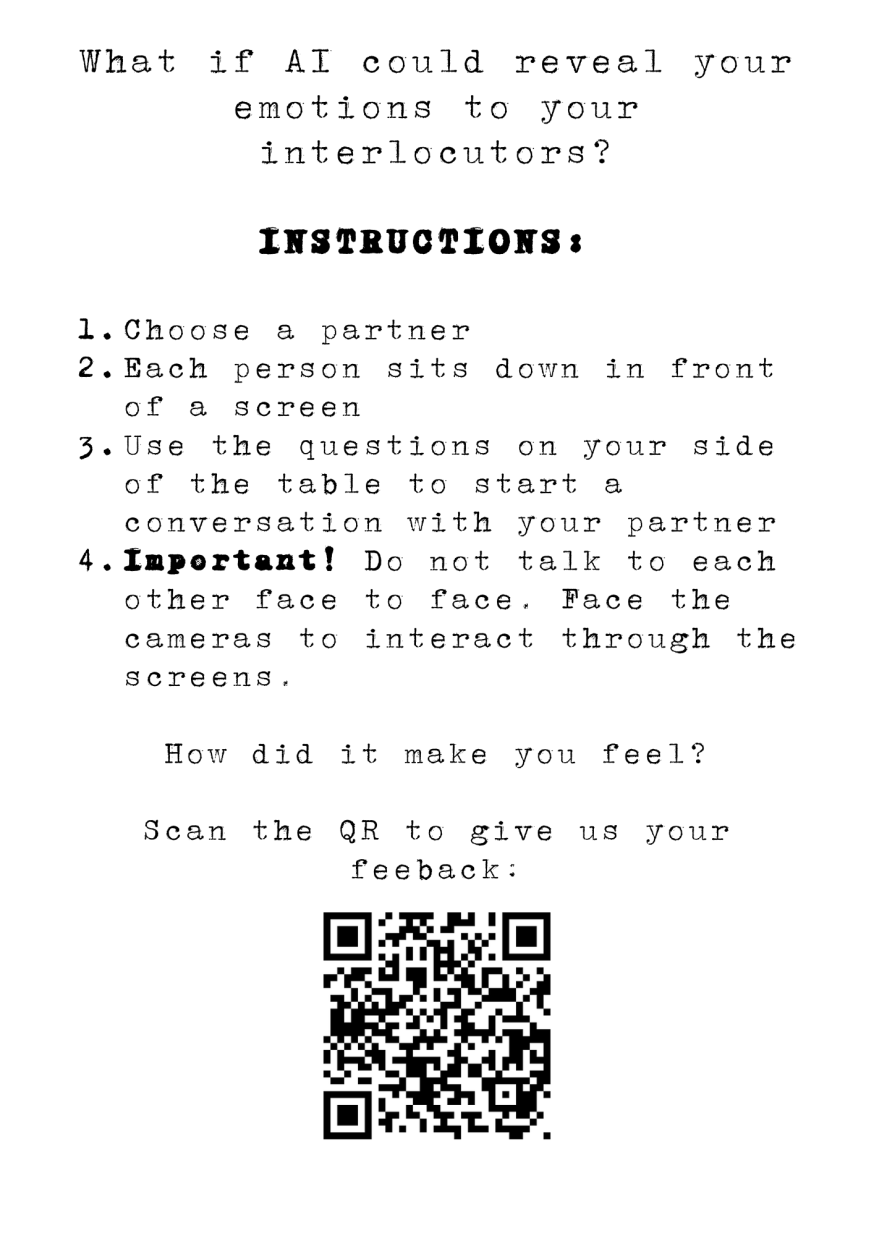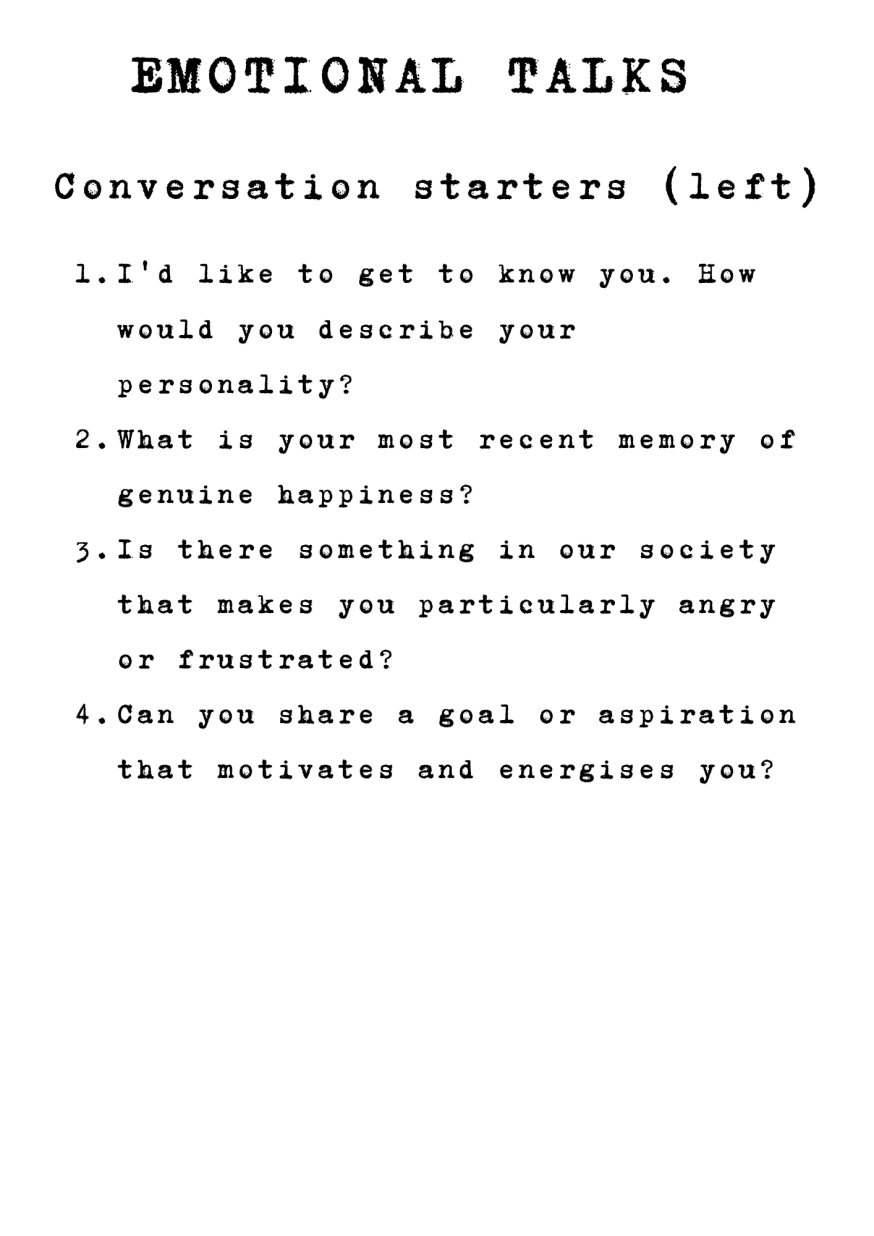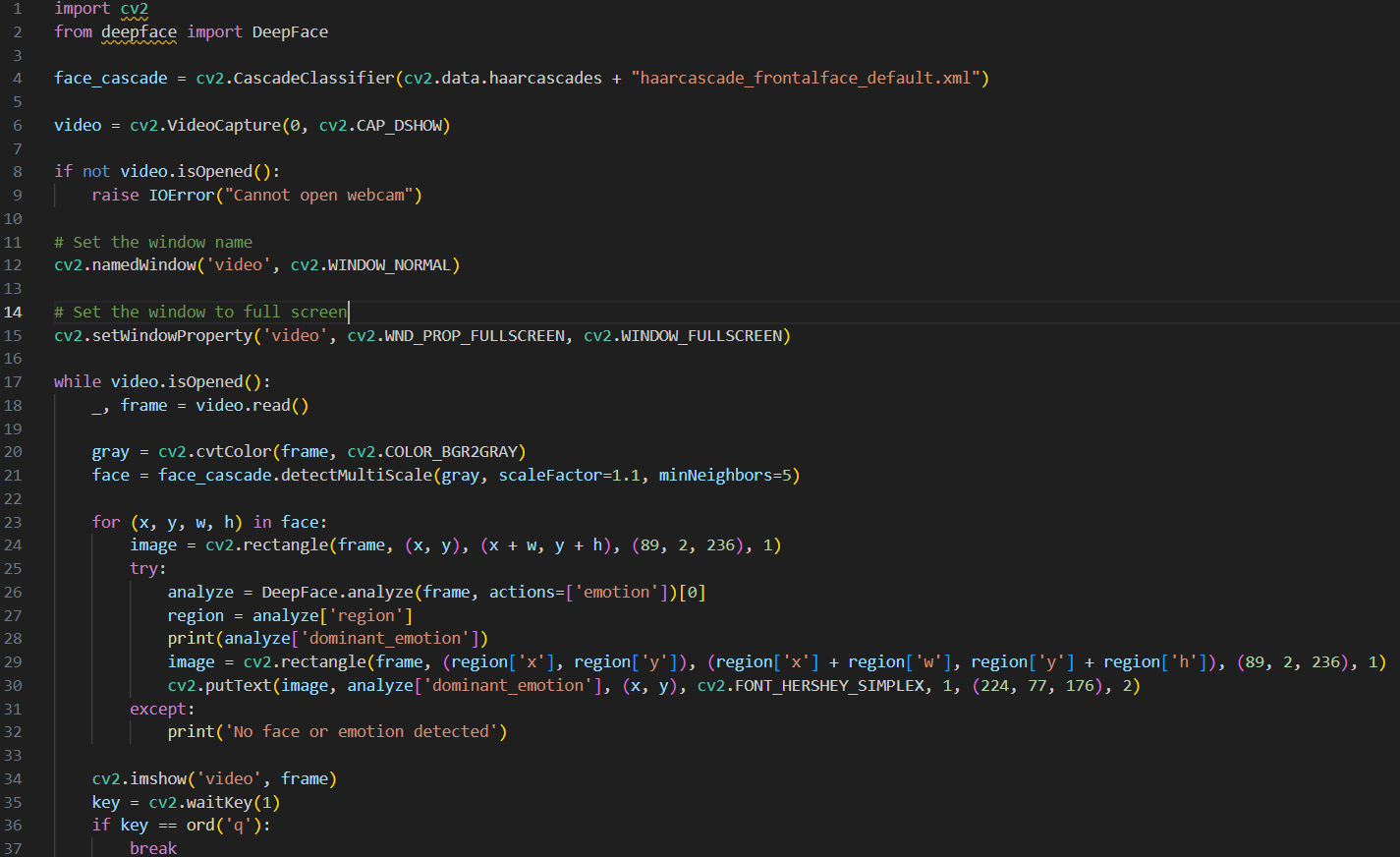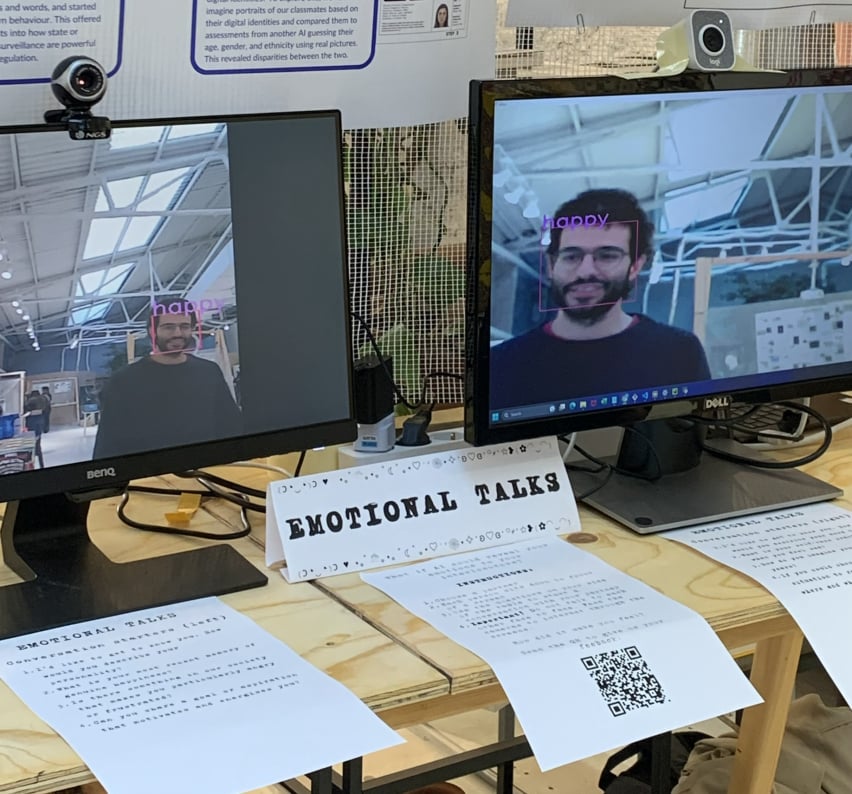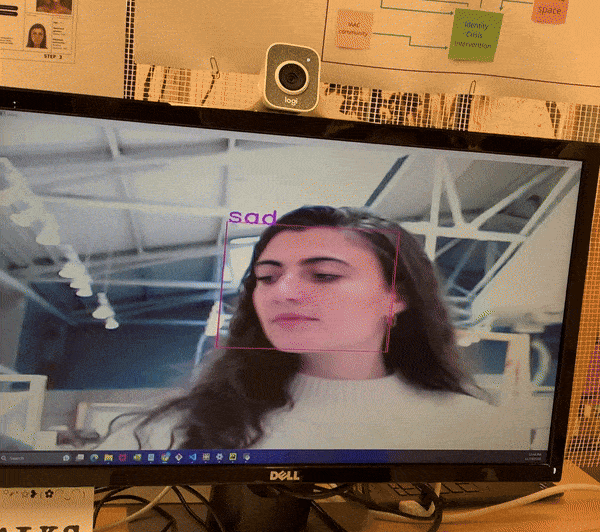
How will AI shape us?
After exploring how AI perceives identity in my "Identity Crisis"
intervention, I then wanted to explore how AI can modify our identity and behavior. In a world where we increasingly rely on AI to perform tasks that we know how to do but no longer want to do, how will our brains develop and how will our behaviors change if we no longer perform tasks that are part of our daily lives today? When it comes to bringing new drugs to market, a lot of tests are done to understand the potential side effects. But for AI, the first company that managed to bring it to market did so without prior testing. So I wanted to understand how the human brain will adapt in 200 years if AI becomes an integral part of our lives, which is why I created Emotional Talks..
